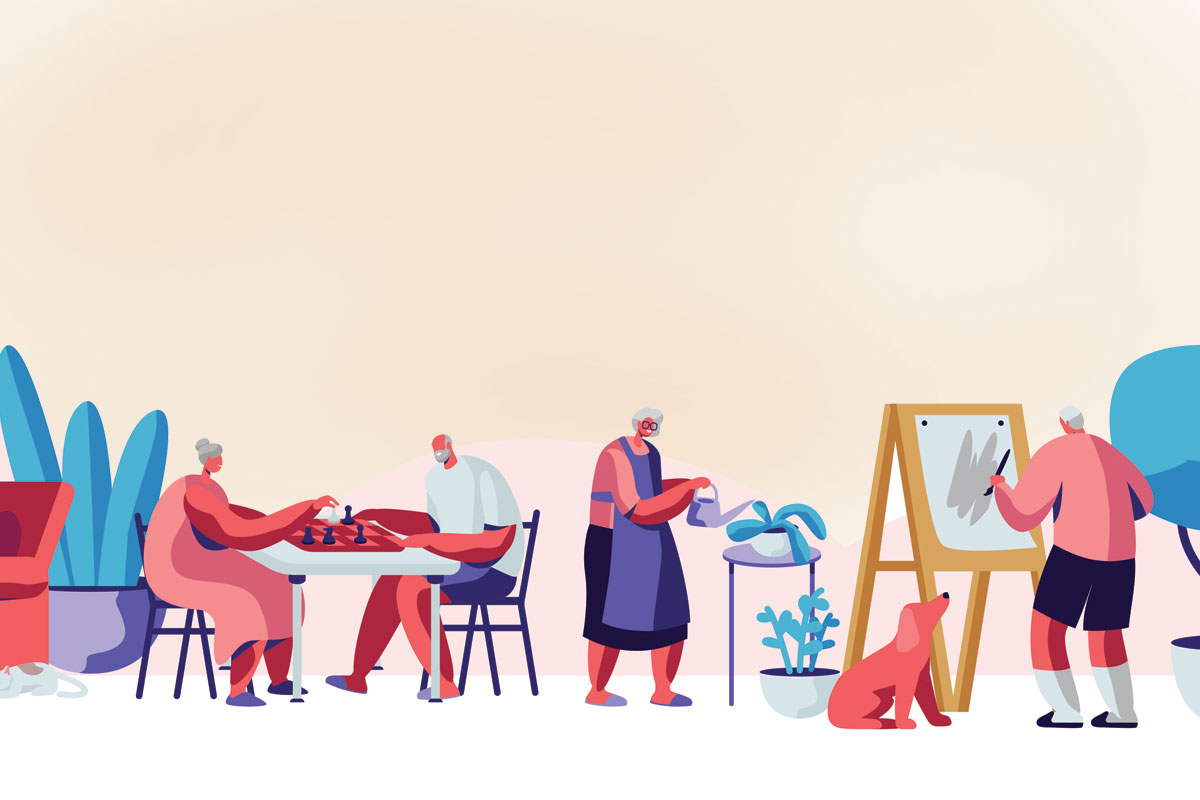“Get a hobby.”
The phrase was once considered a dismissive comment—perhaps said to a busybody friend or relative—but as pandemic life drags on, it’s become a viable suggestion. For older adults, who, as some of the most vulnerable to the virus, have borne the brunt of isolation over the past year, finding a new hobby to stay engaged has become a lifeline.
“Hobbies engage the brain in a pleasurable way,” says David DeBiasi, a registered nurse and the associate state director of advocacy and outreach for AARP Virginia. “They can relieve stress and help maintain connections between brain cells.”
Recent studies have revealed that neurogenesis, the formation of new brain cells, does occur throughout adult life, contrary to prior assumption that all of a person’s brain cells were present at birth.
AARP’s Global Council on Brain Health has identified six pillars of a brain-healthy lifestyle: exercising, eating healthy, improving sleep, managing stress, engaging socially and doing cognitively stimulating activities.
Indeed, DeBiasi notes, engaging in these cognitively stimulating activities—or exercise—in a social capacity has added benefits.
“Socializing with people is one of the more complex things we do, and the more complex an activity, the better it is for the brain,” he says. “For example, playing the card game bridge is better than solitaire. It is more complex and adds the social component.”
In the early days of the pandemic, Fairfax County Neighborhood and Community Services began organizing programs to address isolation among older adults, says Amanda Rogers, communications director for NCS. The ultimate result was the Virtual Center for Active Adults, which offers programming on two Zoom accounts: Fit and FAB hosts virtual fitness classes, while Social SPACE hosts creative and cognitive programs.
The pandemic has affected several of the aforementioned six pillars, from causing people to be more isolated to more stress, which can lead to unhealthy eating and poor sleep. “You may not have the motivation, energy or opportunity to engage in hobbies and other cognitively stimulating activities,” DeBiasi explains.
And should anyone be concerned that they are “too old” to learn something new, Rogers says that it’s never too late.
“Start small,” she says. “Commit to taking one class. If you enjoyed it, take another class in the same subject. If you didn’t enjoy it, try a different class.”
And if you’re searching for ideas, these local seniors have all embraced new hobbies within the last year.
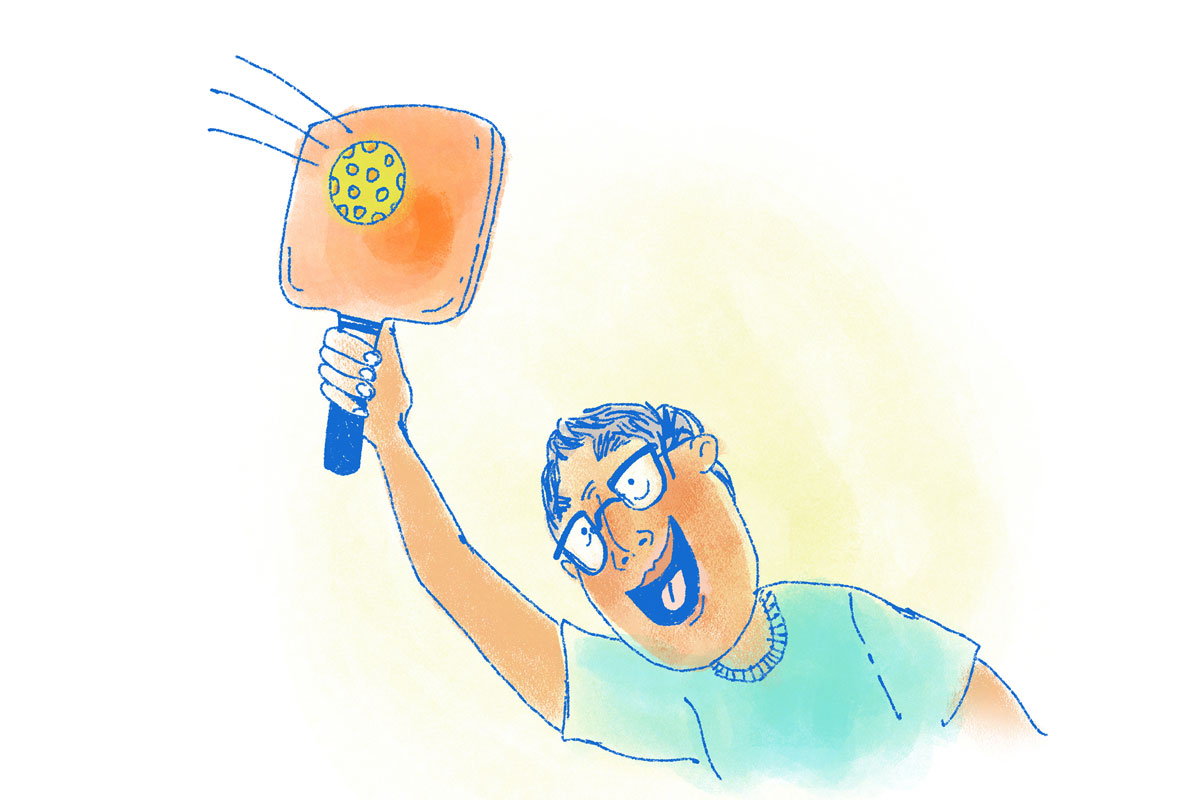
Play Pickleball
Pickleball may be growing among the under-50 set, but there is also a dedicated contingent of seniors who love to play locally.
“I take my pickleball paddle with me wherever I go,” says Joan Flippin, 75, of Alexandria.
She started playing a couple of years ago, after a detached retina caused her to lose vision in her left eye. “My tennis game was suffering. Pickleball is very inclusive for players of different abilities.”
Indeed, among her opponents has been a wheelchair user who teaches pickleball to other wheelchair users.
Pickleball combines aspects of tennis, badminton and Ping-Pong. It is played on a badminton-size court (20 feet by 44 feet) with a whiffle ball and a modified tennis net.
“It’s very convivial,” says Steve Nelson, 70, and Flippin calls it “more social than competitive.”
There are pickleball courts at three indoor recreation centers in Alexandria, but all play moved outdoors when the pandemic started. Players wear masks in between games and are able to maintain social distance during play. Some bring folding chairs that they set up six feet apart in between games.
“Pickleball is very addictive, good exercise and absolutely social,” explains Flippin. “It is very easy to take your paddle wherever you might go and find a group to play with.”
While most of her pickleball partners are retired, she says, she recently purchased her own net so she can play with her grandsons, ages 7 and 9.
How do I get started? Check out the websites places2play.org and pickleballrush.com to search by state. Visit alexandriava.gov and search for “pickleball.”
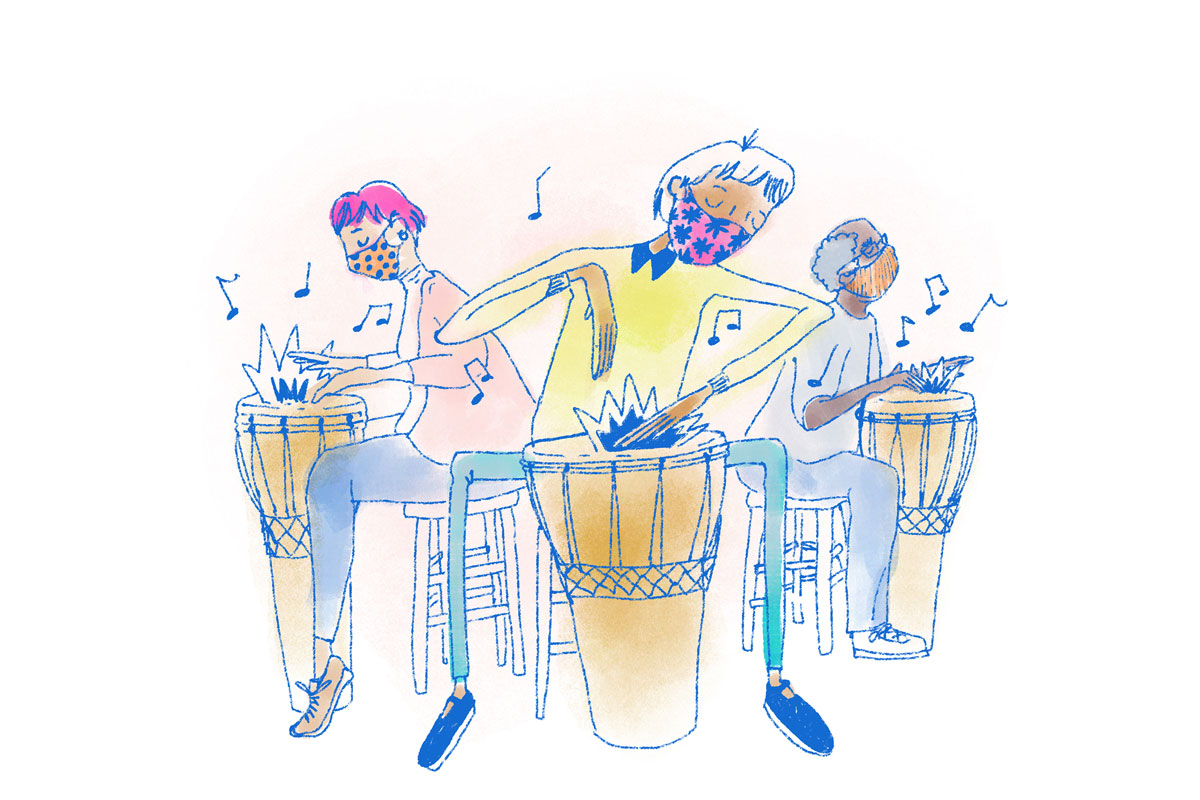
Join a Drum Circle
Fran Field has been beating away the coronavirus stress. As a co-leader of the Langston-Brown 55-plus Recreational Drumming Circle, she helps facilitate a fun, safe activity for herself and others.
“Once the drumming starts, all thoughts of the pandemic and other worries evaporate,” says Field, 73, of Arlington. “I just concentrate on the rhythms.”
The drum circle ranges from 10 to 15 members, all over the age of 55. They meet once a week, outside, and adhere to COVID-19 safety protocols: Masks are worn, chairs are set six feet apart, and drums and chairs are sanitized before and after use.
At each session, members are issued a djembe (of West African origin), darbuka (of Middle Eastern origin) or frame drum (of mixed origin). Players sit in a semicircle facing a facilitator who plays recorded music on a boom box. The sessions consist of both practiced and improvised tunes, and each ends with a mindful drum meditation.
“There’s a physical connection with our [hand] drums that we can’t have with friends and family right now,” says Field, who also touted the opportunity for safe social interaction and the chance to learn a new skill. “I wanted to play drums when I was a kid but never had the opportunity.”
How do I get started? To learn more, email Anne Peret, supervisor of 55-plus programming at the Arlington Office of Senior Adult Programs, Department of Parks and Recreation, at aperet@arlingtonva.us.
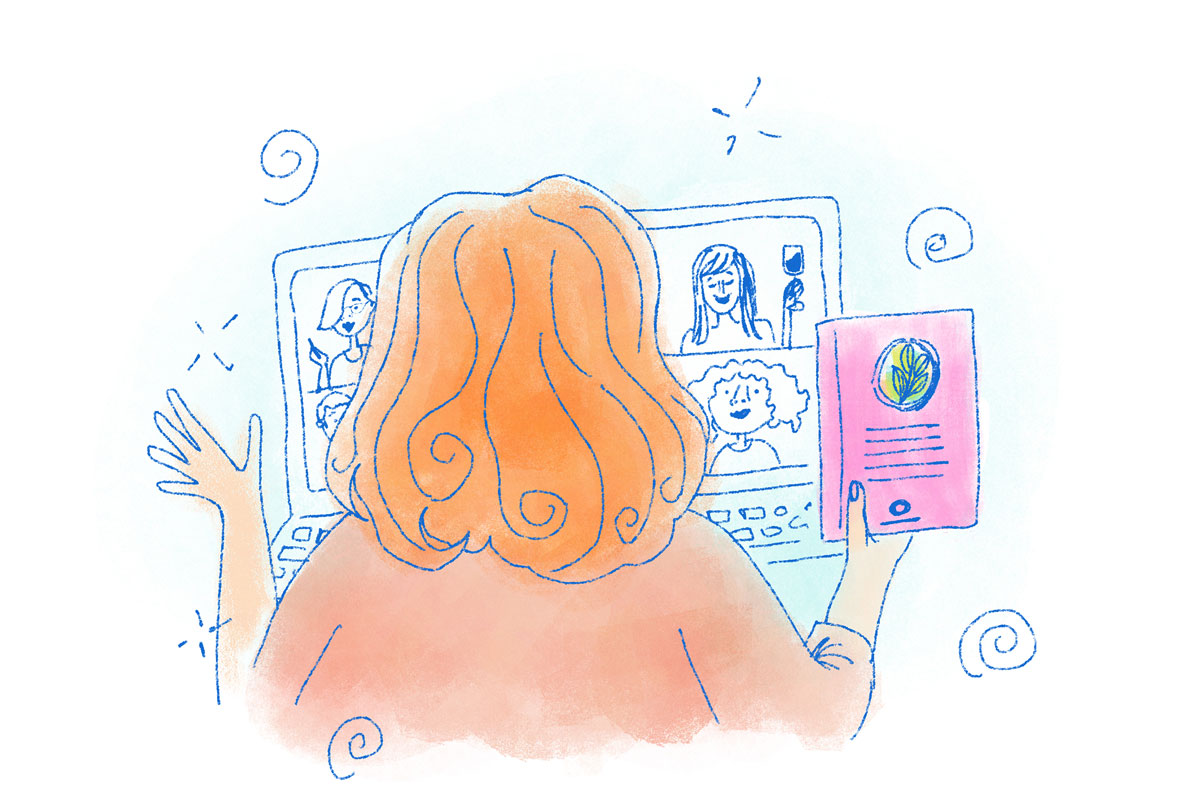
Share a Love of Reading
Brenda Bloch-Young, 72, used to meet up with her book club on the third Sunday of each month at St. Elmo’s Coffee Pub in Del Ray, but when the pandemic hit, the group migrated to Zoom.
“We find we like Zoom because we can all hear one another,” she says. “On a Sunday afternoon, pre-pandemic, St. Elmo’s could get pretty busy.”
The group, which ranges in age from 30 to late 70s, includes a number of retired English teachers, writers and academics.
“It’s a very diverse group—folks not born in the U.S., all different races, all with great interest in good literature,” Bloch-Young says.
The books—all fiction—are voted on by the group three months ahead of time and have included The Nickel Boys by Colson Whitehead, The Overstory by Richard Powers and My Name is Lucy Barton by Elizabeth Strout.
Bloch-Young appreciates the dedication of her fellow book-clubbers to detailed discussion of the chosen novels. “We go in-depth about the plot, the narrative, the symbolism,” she says. “It’s definitely not superficial. Folks will actually read multiple reviews and bring up multiple points, do research on the author. Everybody that comes is truly prepared to participate.”
As a continued celebration of her love of reading, Bloch-Young had planned to travel with her London-dwelling daughter to Wales for the Hay Festival of Literature and Arts and to Scotland for the Edinburgh International Book Festival last year. Instead, they were able to attend both online. “It was delightful,” she says. “I can’t tell you how much I enjoyed it.”
Several book club members also took advantage of the literary festivals’ online offerings, she says, and now want to visit Wales as a result.
How do I get started? There are a number of ways to get involved in a book club. Meetup.com features more than a dozen local book clubs, for various demographics and topics. Contacting local bookstores can be a great way to learn about book club offerings. The Arlington Office of Senior Adult Programs offers a 55-plus book club.
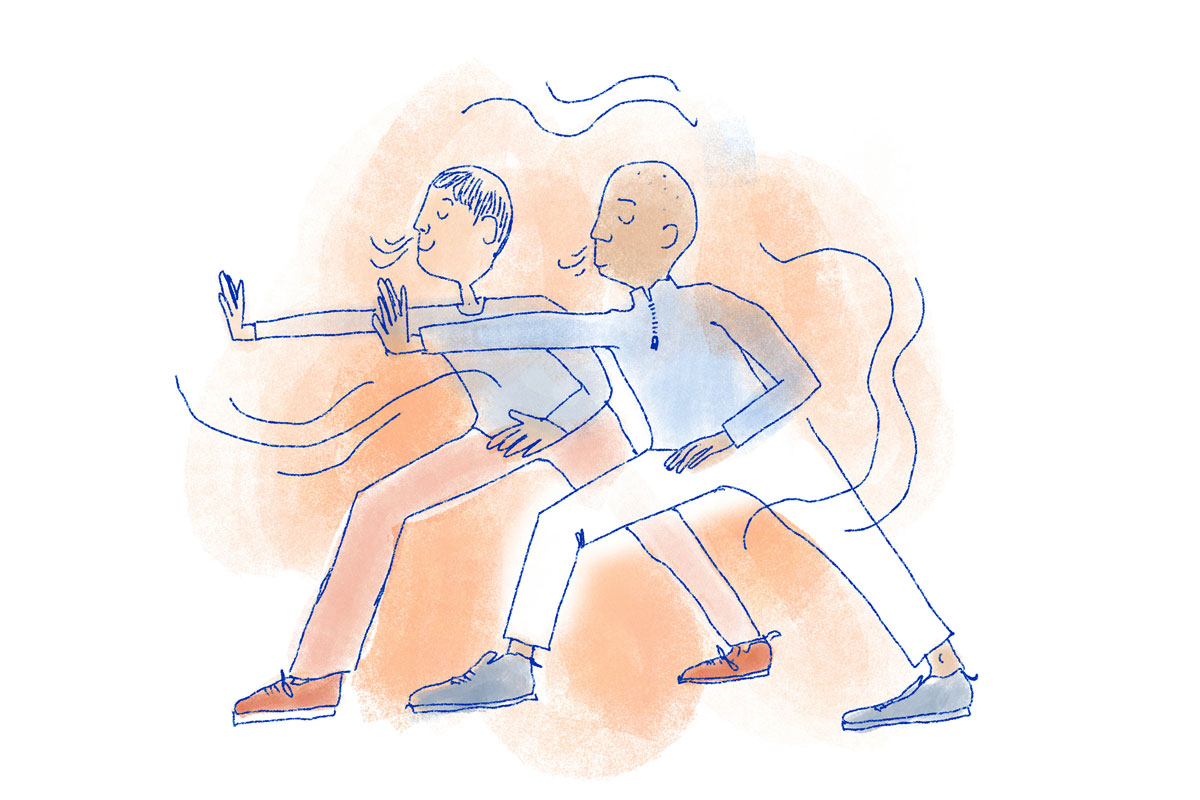
Move Your Body with Tai Chi
Jorge Bañales, 70, has been teaching tai chi in Northern Virginia and Washington, DC, since 2000. Since the pandemic started, he has moved his classes from the Yoga in Daily Life studio in Del Ray to Jones Point Park, under the Wilson Bridge. Everyone wears masks and keeps the requisite six-foot social distance. His classes include a number of seniors, who speak to the physical and mental benefits of the practice.
Doug Stern, 64, of Alexandria, has been taking classes with Bañales for 13 years. “Tai chi helps to keep my memory exercised,” he says. “It also keeps me limber and maintains balance and coordination skills.”
Lynn Simarski, 65, of Old Town, came to tai chi after a foot injury affected her balance and a friend told her about Bañales’ class.
“The first class with Jorge blew me away—literally, because you begin with learning how to breathe. I felt different even after the first class—challenged both mentally and physically, but also calmer,” says Simarski.
“Tai chi has made me more conscious of how I hold myself, how I’m distributing my weight, whether I’m balanced or unbalanced,” says Robert Coontz, 64, who lives in the North Ridge neighborhood of Alexandria and has been practicing tai chi for 10 years. “That sort of awareness will only become more important as I grow older.”
Tai chi is sometimes called “moving meditation” for its flowing movements. While students practice alone during the week, Simarski says she enjoys the social, supportive aspect of the group classes.
“After the very first class, I was buoyed up when another student said to me, ‘You’re halfway there already!’” she recalls.
“I’ve never been a natural athlete,” says Coontz. “As a kid, I was gangly and uncoordinated and very self-conscious about it. But tai chi lessons are different: slow, patient, noncompetitive, incremental. Now, when I practice the forms I’ve learned, sometimes I actually feel graceful. It’s a pleasant feeling.”
Bañales has also developed Zoom classes, both one-on-one options and group sessions with residents of local memory care and assisted living facilities. He is the co-founder of Your Third Eye, a tai chi and qigong studio.
How do I get started? Visit taichijab.com to learn more about tai chi classes taught by Jorge Bañales.
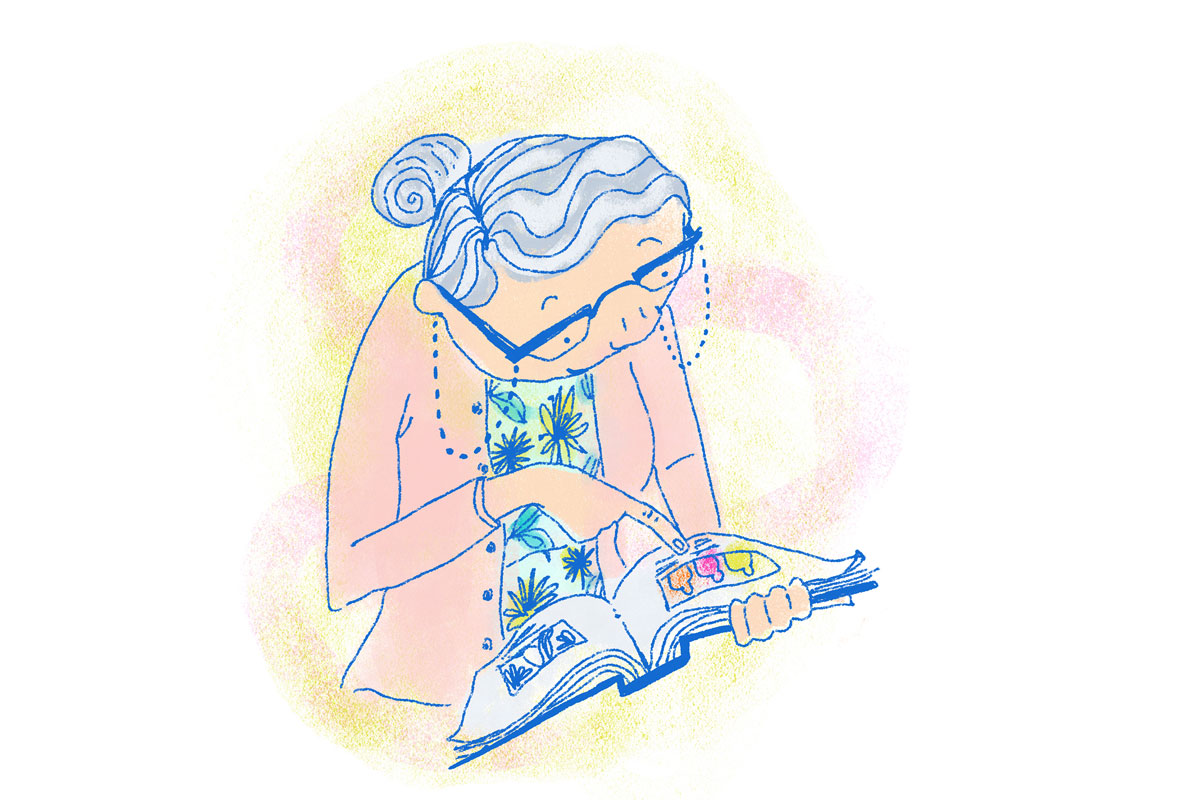
Research Your Family History
Nancy Limprecht began studying her family’s genealogy after she lost her mother in 2007.
“With her death came my realization that I was now the older generation and the historian/archivist of the family,” Limprecht explains.
She bought a membership to ancestry.com but also had a complete book of her mother’s ancestry available, so she focused more on learning about her father’s family tree, using sites like jewishgen.org and myheritage.com, and joined one of her synagogue’s genealogy groups.
She learned previously unknown information, such as her grandmother’s maiden name, and joined with cousins to research a history of mental illness in the family.
Limprecht, 72, has continued her research during lockdown—“I find this hobby more productive than doing sudoku”—and says she can “vanish down the rabbit hole.”
“There is always more to discover as more records get digitized,” she says. “Recently, I found myself staring at high school photos from yearbooks of my grandparents, their siblings and cousins from the early 1900s.”
As she has continued to research a detailed family tree with records attached, Limprecht takes comfort in knowing that she is creating a historical document that her children and grandchildren can use to learn more about their family history.
Her own chapter is a storied one. She has traveled the world, with her late first husband, who was a U.S. foreign service officer, and with her husband, Rick, with whom she shares the Arlington townhouse she bought in 1991, when she and her daughters were evacuated from Pakistan at the start of the first Gulf War. Just before the pandemic began, Nancy and Rick returned from a “fascinating” trip to Israel, Egypt, Jordan and the West Bank.
How do I get started? Ancestry.com is a great place to begin your research. Also check out local resources such as the Mount Vernon Genealogical Society and the Fairfax Genealogical Society.
Want more ideas? Add these to your list:
Listen to Music
In addition to listening to what you love, David DeBiasi suggests listening to new music that will stimulate the brain with a different dynamic, or tapping to the beat and trying to figure out the complex rhythms. Try Inside the Score to learn more about classical music.
Take Classes
Brenda Bloch-Young enjoys classes through the Osher Lifelong Learning Institute at George Mason University as well as through the Smithsonian Institution.
Learn a New Language
Learning a language can help keep your mind sharp, and finding a practice partner offers opportunities for social interaction. Look at online resources like Babbel, Duolingo, Rosetta Stone or Pimsleur, or local Meetup groups for the specific language you’re studying. Some Jewish synagogues, like Beth El Hebrew Congregation in Alexandria, offer Hebrew learning opportunities.
Work Out at Home
No need for fancy equipment. When her gym closed, Nancy Limprecht set up a workout space in her basement with a yoga mat, stability ball, free weights and exercise bands. Contact your local gym or personal trainer and ask for a (paid) consultation on setting up an at-home workout space that’s best suited to your needs. For a blast from the past, search Jane Fonda’s Walking Cardio Workout on Youtube. Sorry, no ’80s leotards in sight.
Dig in the Garden
Master Gardeners of Northern Virginia is an excellent resource and currently has an active virtual classroom.
Knit Something New
Knitting has a lot of benefits, from relaxation and improved hand-eye coordination to cognitive functioning (keeping track of stitches) and socialization in the form of knitting circles. Contact Knitting Artists of Northern Virginia and local knitting stores like Fibre Space or Yarn Cloud to learn about their instructional offerings, or check your neighborhood Meetup.
Take a Creative Writing Class
If you ever had an inclination to write your memoirs, stretch a creative muscle or tell stories, this is a fine time to take a whack at it. Look for your local chapter of The Virginia Writers Club, find workshops at The Writer’s Center, or contact The Northern Virginia Writers Club, as well as Meetup groups.
Try Readers’ Theatre
At Home in Alexandria has launched a Readers’ Theatre group that does readings from a variety of scripts, such as old radio comedy sketches. Contact executive director Cele Garrett at cele@athomeinalexandria.org to learn more.
Create a New Recipe
Still recovering from the holidays? Have you gained the Quarantine 15? Try virtual cooking classes with local businesses like Cooking Thyme with Stacie, Cookology or Cozymeal.
This story originally ran in our February issue. For more stories like this, subscribe to our monthly magazine.

